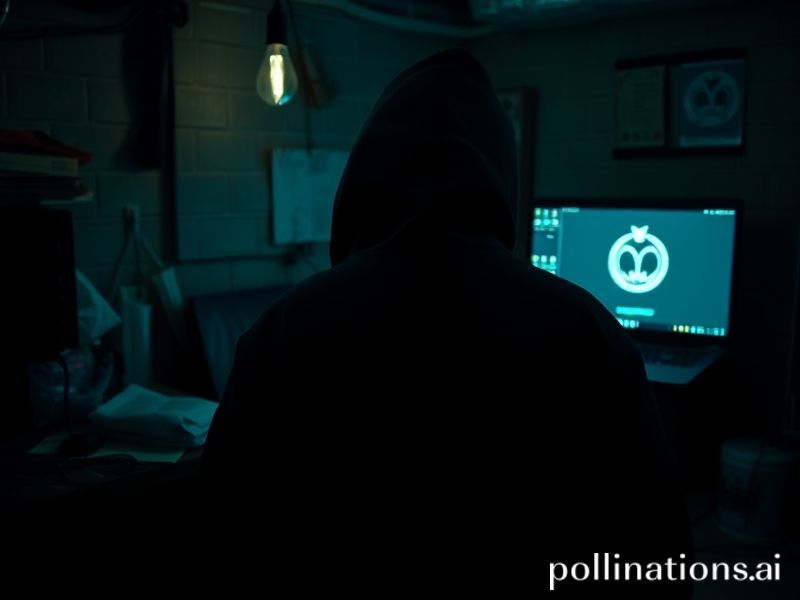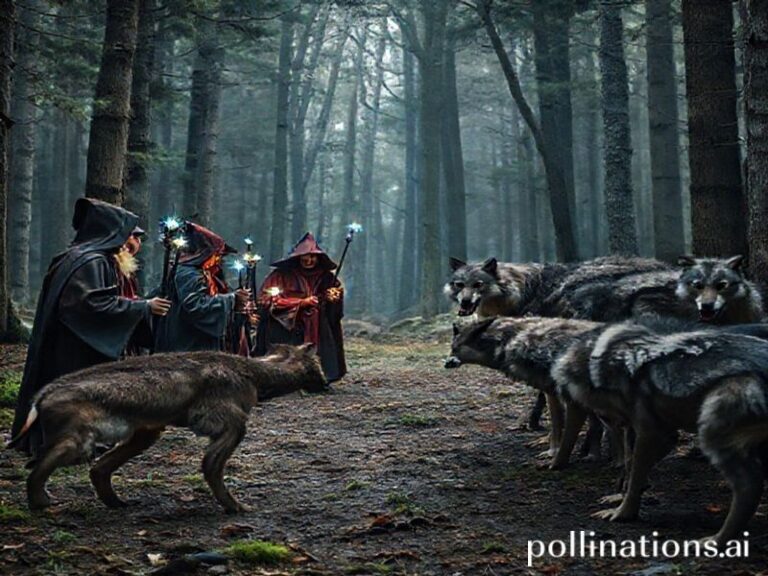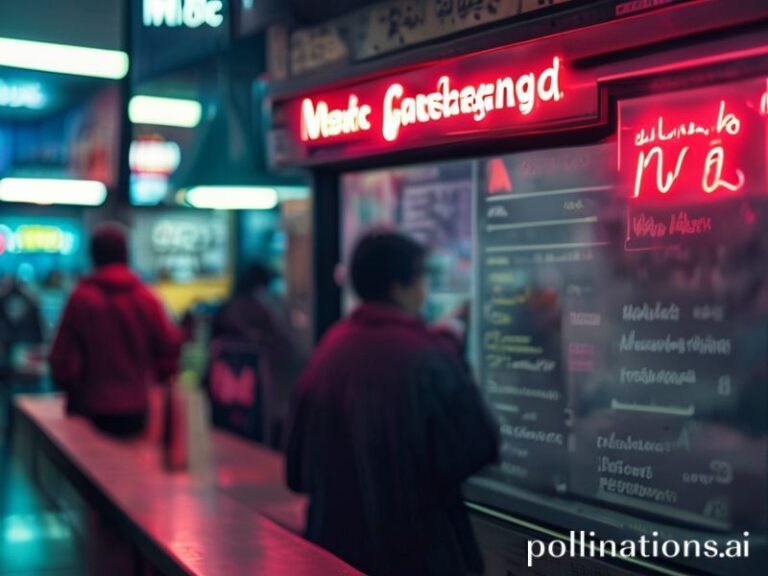Global Bazaar of Shadows: The Dark Web’s Borderless Black Market
The Silk Road Is Dead—Long Live the Silk Road
A sardonic tour of humanity’s digital black market, from a Bangkok internet café to a Moldovan server farm
By the time you finish this sentence, three new darknet marketplaces will have opened, two will have exit-scammed, and one will have been seized by a three-letter agency that still insists on spelling “organisation” with a Z. Welcome to the dark web, that shadowy bazaar where geopolitical borders collapse faster than a crypto exchange on a Monday morning, and where every transaction is a referendum on the human condition—spoiler: we’re not passing.
Let’s dispense with the Hollywood nonsense first. The dark web is not a neon-soaked cyberpunk cityscape presided over by trench-coat-wearing hackers who quote Nietzsche between keystrokes. It’s mostly PHP forums hosted in former Soviet gymnasiums that smell faintly of cabbage and fear. The lingua franca is broken English sprinkled with emoji and cryptocurrency addresses long enough to double as modern haikus. If Dante had owned a Tor browser, the ninth circle would have been a CAPTCHA that never loads.
Globally, the dark web functions as globalization’s evil twin: the same fiber-optic cables that deliver cat videos to Lagos living rooms also ferry fentanyl from Shanghai to Sheffield. Supply chains are ruthlessly optimized. Dutch pills pressed with Malaysian precursors are escrowed by Panamanian middlemen and reviewed—yes, with star ratings—by Canadian teenagers who type “10/10 stealth, my mum opened the package and thought it was artisanal tea.” Somewhere, Adam Smith’s invisible hand is clutching a burner phone.
Governments, naturally, insist they’re winning the war on this digital black tide. The FBI will parade a seized server like a trophy swordfish, Europol will tweet a meme about “Operation DisrupTor” (get it?), and everyone politely ignores the fact that takedowns merely trigger a Cambrian explosion of fresh sites. Kill one Hydra—literally, the Russian market named after the mythical beast—and two smaller heads pop up, each with better OPSEC and a Discord channel. It’s Whac-A-Mole with jurisdictional headaches: the mole has a Latvian passport, the mallet is in Washington, and the arcade is technically in international waters.
Meanwhile, the ethical roulette spins differently depending on where you sit. In Sweden, buying a gram of MDMA online is treated as a public-health hiccup; in Singapore, it’s a potential death-penalty résumé builder. Ukrainians fleeing war have used darknet crypto wallets to move life savings across borders faster than Western Union can say “compliance check.” And in Myanmar, rebel groups allegedly fund operations by selling synthetic stimulants to European ravers who just wanted to feel something on a Saturday. One continent’s weekend hedonism is another’s asymmetric warfare—Marx would stroke his beard in perverse admiration.
The broader significance? The dark web is simply free trade stripped of PR. It reveals supply and demand in its rawest form, unsullied by advertising jingles or ESG reports. If the legitimate internet is a shopping mall with piped-in Mozart, the dark web is the alley behind it where someone offers you a kidney and a knockoff Rolex for the price of a Vancouver studio apartment. It’s the same species, just without the filter.
And yet, for all its nihilistic efficiency, the dark web remains touchingly human. Vendors apologize for delayed shipments during Ramadan. Buyers leave earnest feedback like “product good but please use less plastic, turtles are dying.” Somewhere amid the ransomware affiliate programs and ricin listings, a grandmother in Minsk is sending encrypted cookie recipes because she misses her grandson in Toronto. Even our nightmares have a comments section, and the comments are… oddly polite.
So, should we despair or applaud? Perhaps neither. The dark web is less an aberration than a mirror—cracked, grimy, but reflective. It shows what happens when borders, banks, and brand managers recede and all that’s left is naked desire plus encryption. The mirror doesn’t flatter; it simply refuses to lie. And until we address the appetites that feed it, the Silk Road will keep resurrecting itself, like a middle manager who survives every round of layoffs. The difference is that this one accepts Monero.







